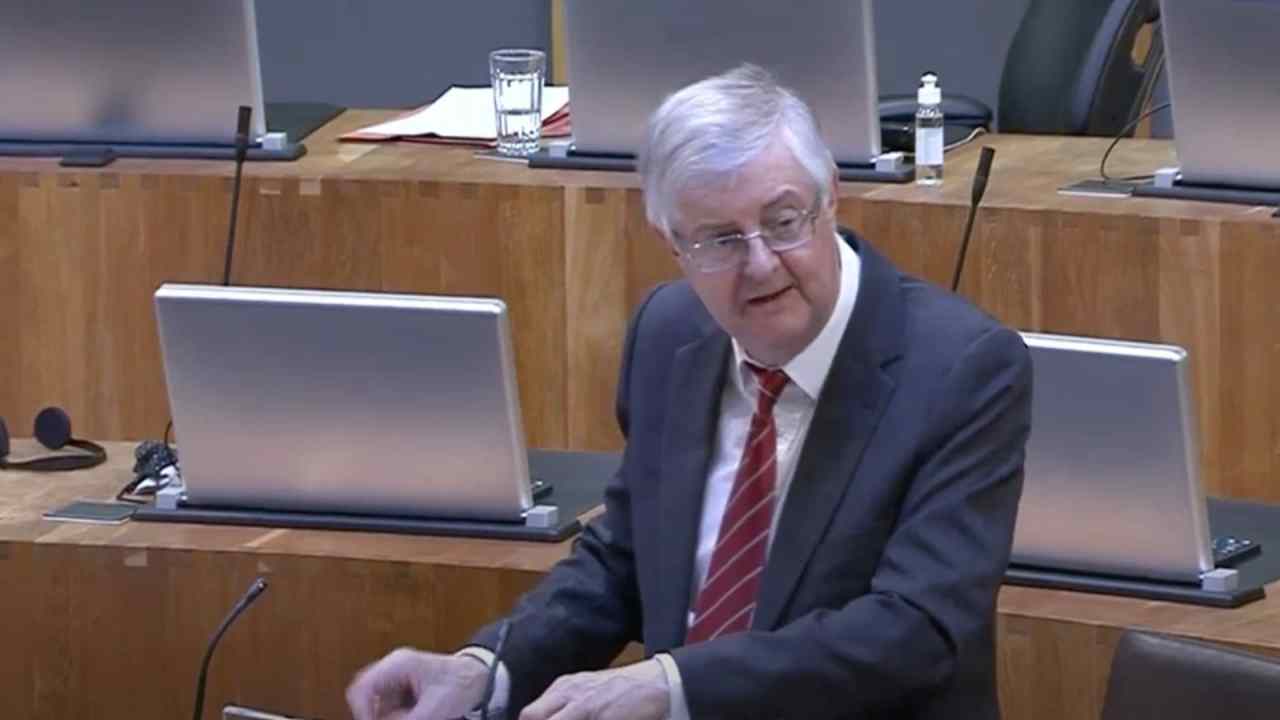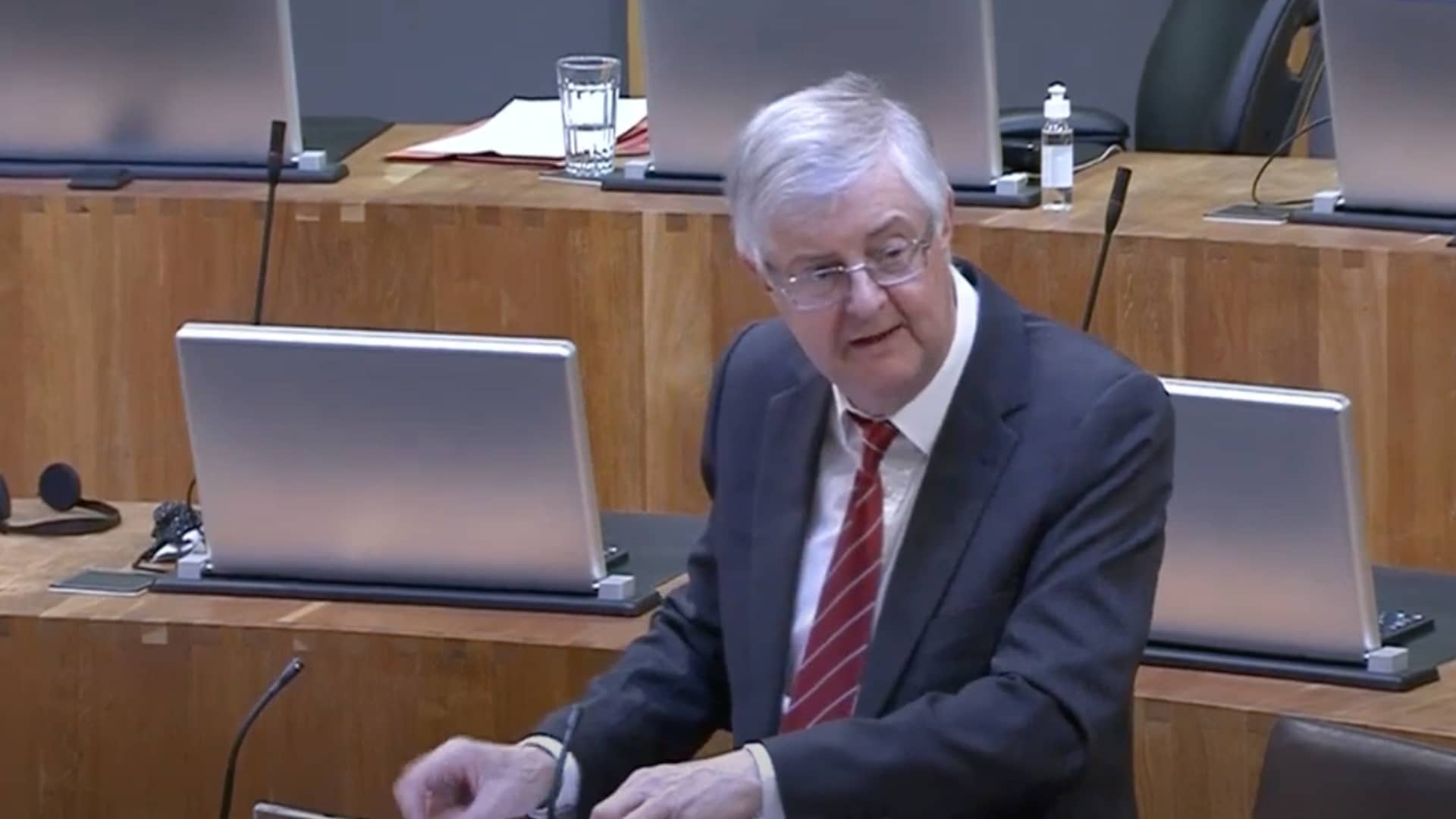It’s not just in Westminster that Labour is having difficulties with transgender issues. Over in Wales, Mark Drakeford’s barmy army has been wrestling with the same debate, amid claims from Labour MP Tonia Antoniazzi that LGBT charity Stonewall has ‘dictated policy’ to her colleagues at Cardiff Bay. And the Welsh Tories have clearly spotted an opportunity here for some clear blue water between the two parties.
For last Tuesday, Tory Laura Anne Jones popped up in the Senedd to lob a grenade at Drakeford at First Ministers’ Questions. The blonde bombshell probed her opponent about just how the Welsh government intends to protect women’s rights in sports as ‘we have a situation where women athletes are so disheartened that they are pulling out of their own female categories.’ She continued by asking:
First Minister, do you believe that trans athletes should compete in female sports? However you feel on this issue, to resolve it, it is fundamental that one can define a woman. So, First Minister, can you do something that many other Labour politicians have failed to do so far, which is define a woman?
Up stepped Drakeford to deliver his reply. And – following in the tradition of Labour MPs in London being unable to answer whether a woman has a penis or not – the First Minister showed that anything Westminster can do, Wales can do better. Asked to define a woman, this was his response:
My starting point is the same as Penny Mordaunt’s—the UK Minister responsible at the time—who said that the UK Government’s starting point was that transgender women are women. That’s my starting point in this debate. It is a difficult area where people feel very strongly on different sides of an argument, and an argument that divides people who agree on most other things. What I say to the Member is that in such a potentially divisive issue, the responsibility of elected representatives is not to stand on the certainties of their own convictions, but instead to work hard to look for opportunities for dialogue, to find ways of promoting understanding rather than conflict, and to demonstrate respect rather than to look for exclusion. I do not understand the point that the Member makes—that you can be too inclusive. To me, inclusivity is absolutely what we should be aiming for here. The way to resolve those challenging issues that she’s identified—and I’ve got no objection at all to her identifying them—is not to assume that because we ourselves may have strong views, that allows us to cast doubt on the sincerity of views held strongly by others. It’s only by dialogue and by understanding that you can reach a conclusion to the sorts of questions the Member has raised.
So, er, that’s a ‘no’ then to the original question. One perhaps for the women of Wales to consider, perhaps, next time they cast their votes. You can watch the full exchange below:








Comments